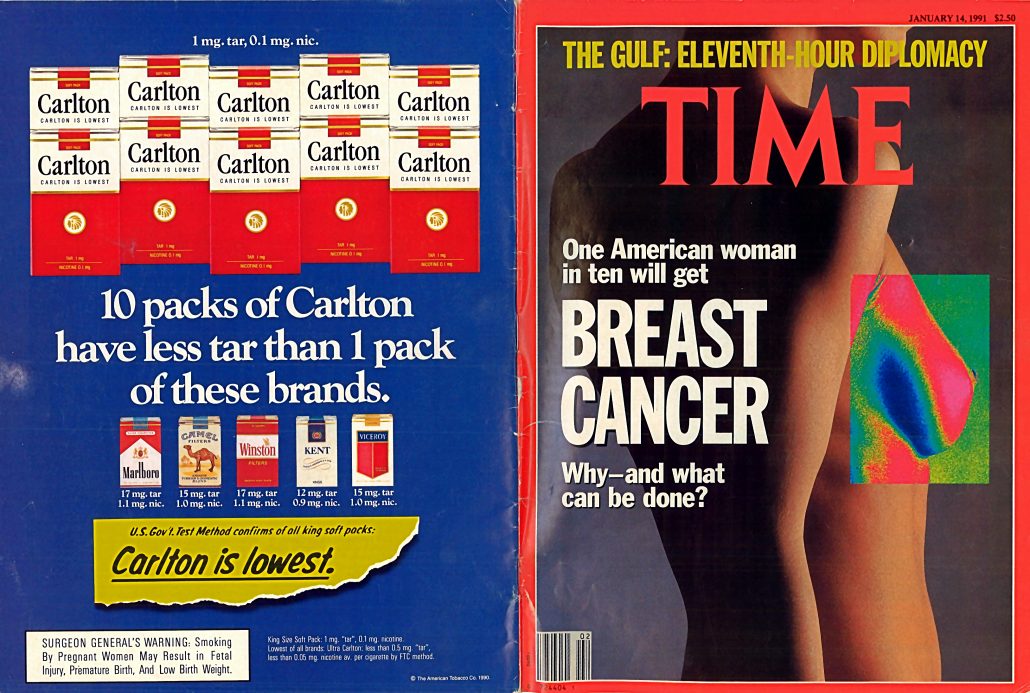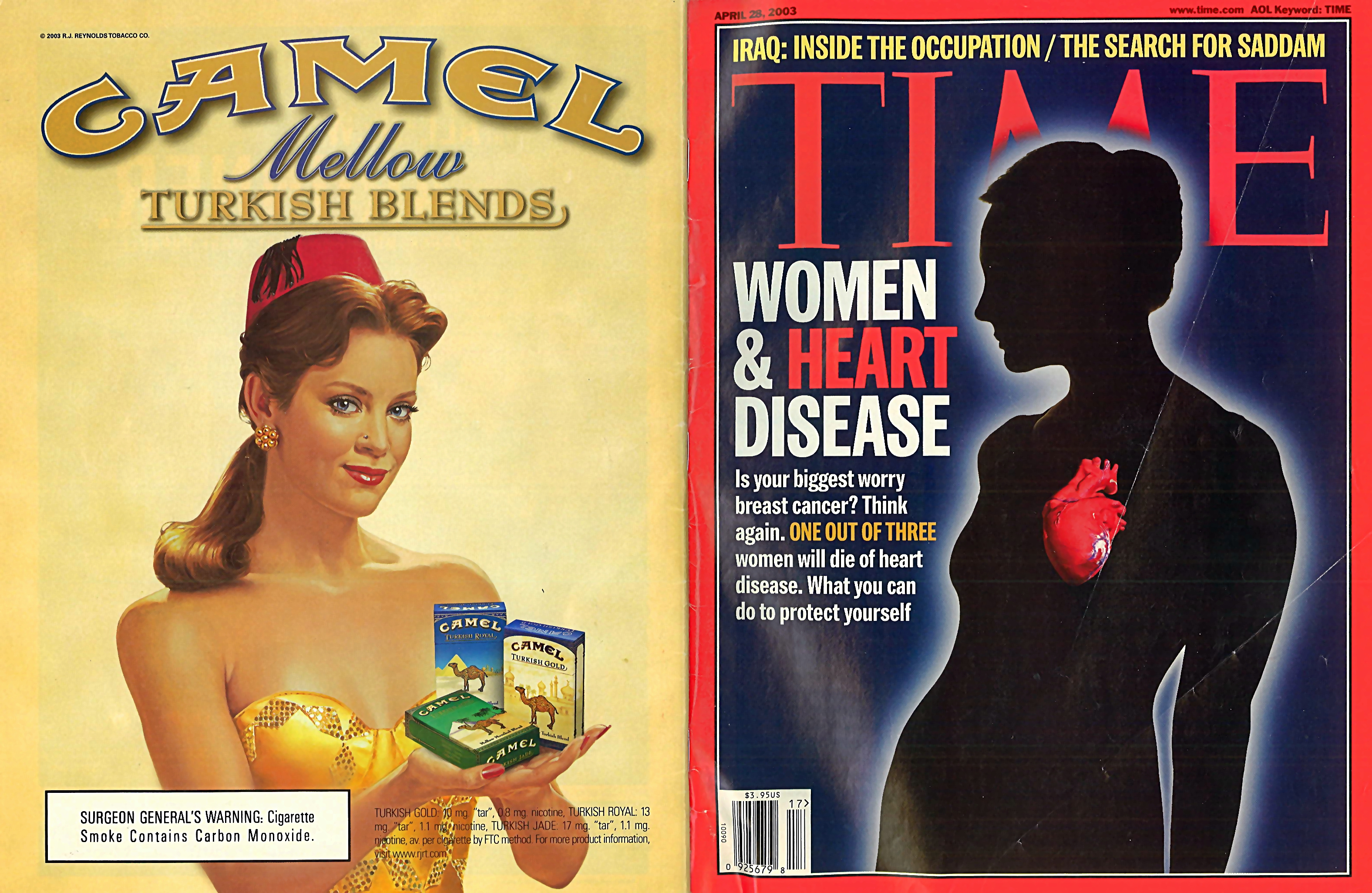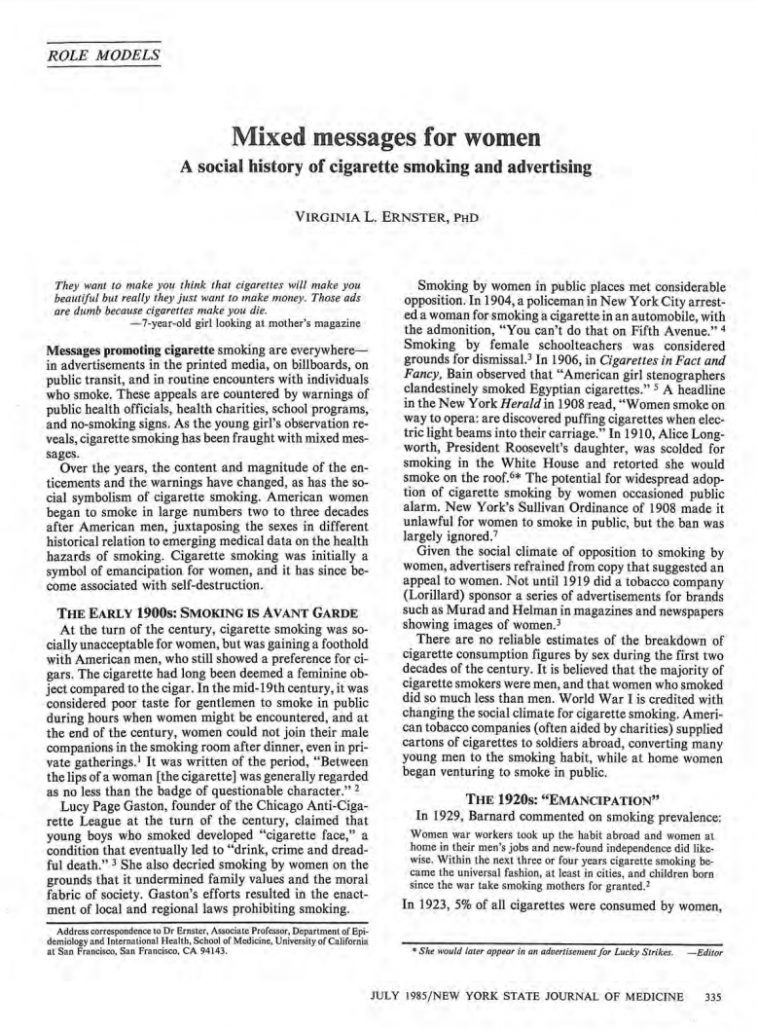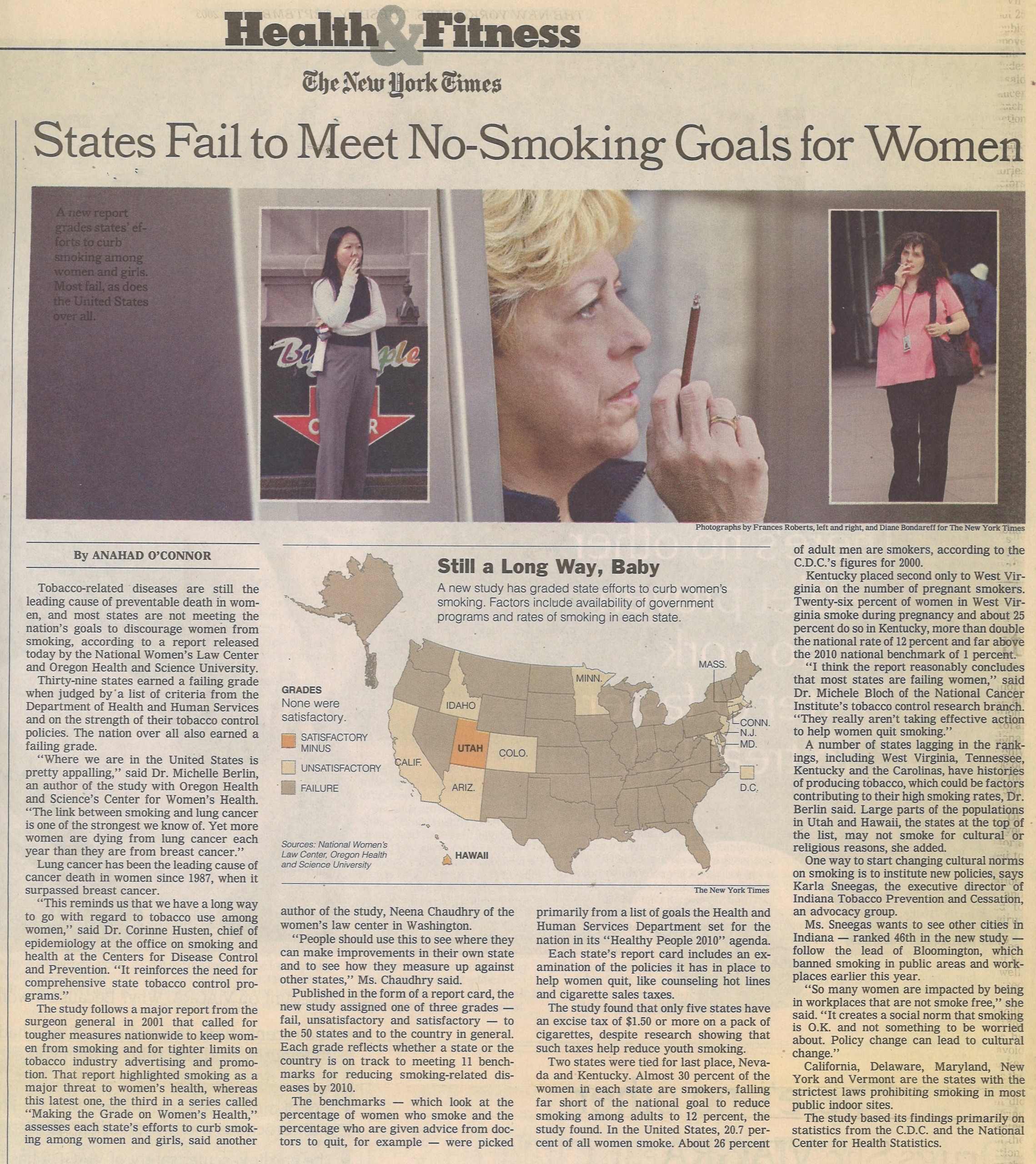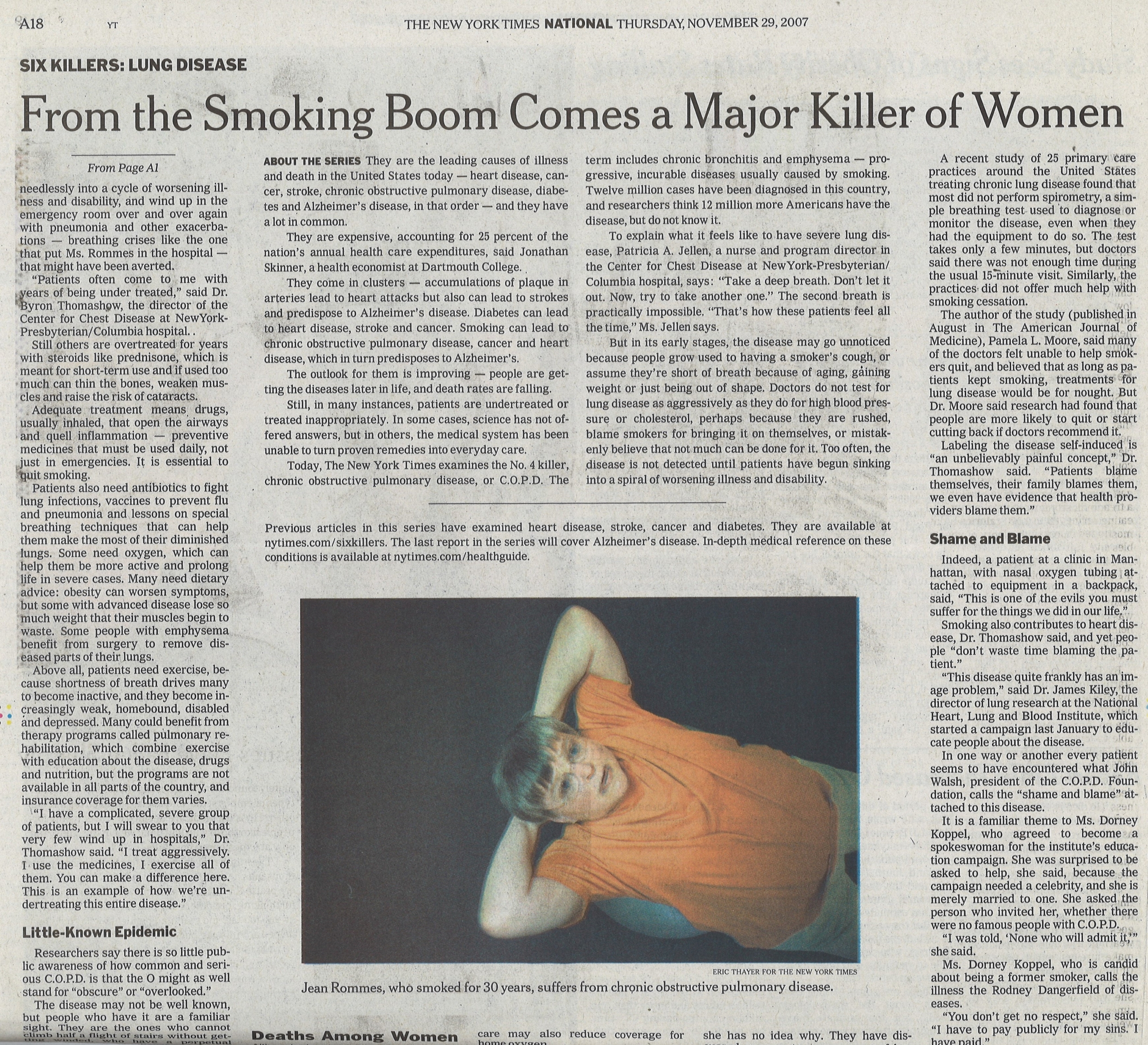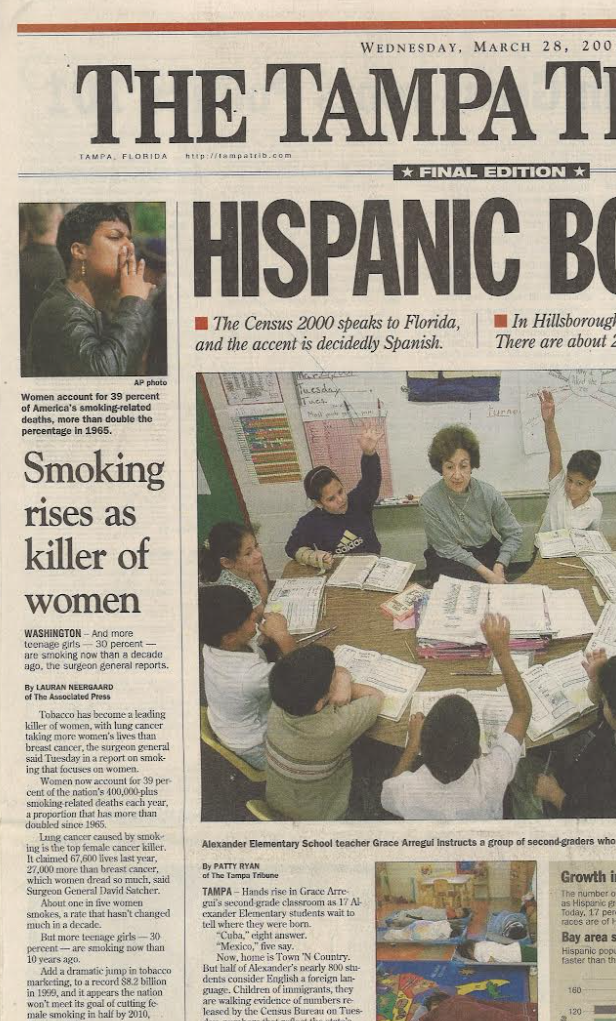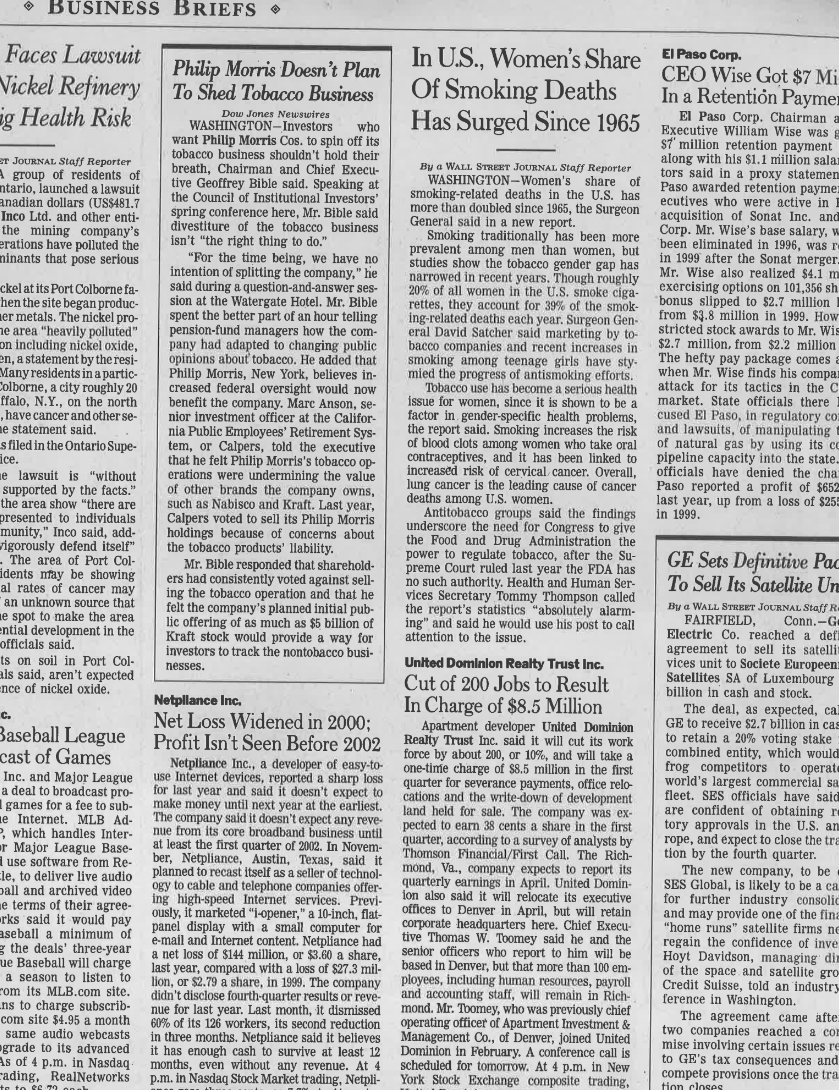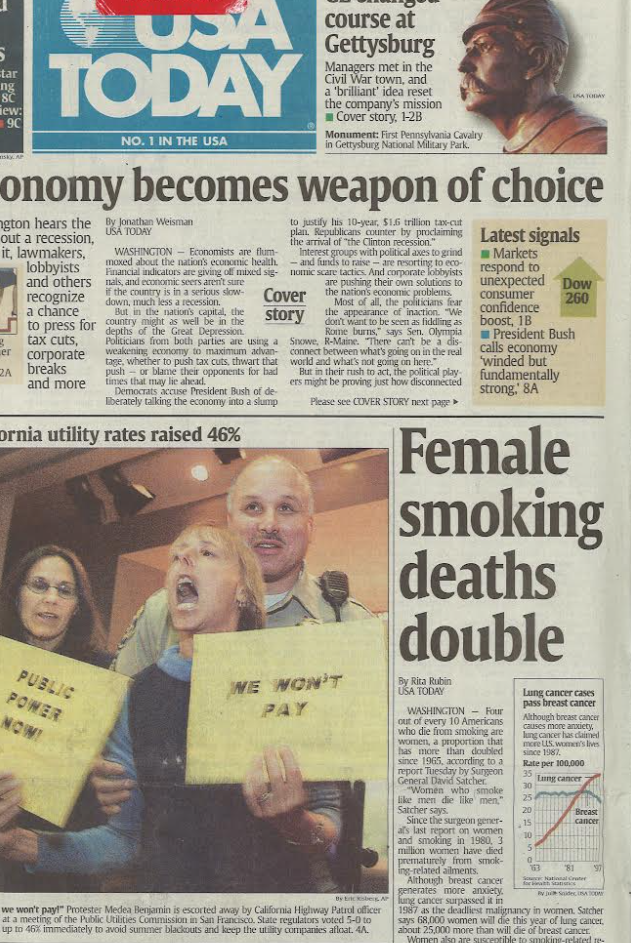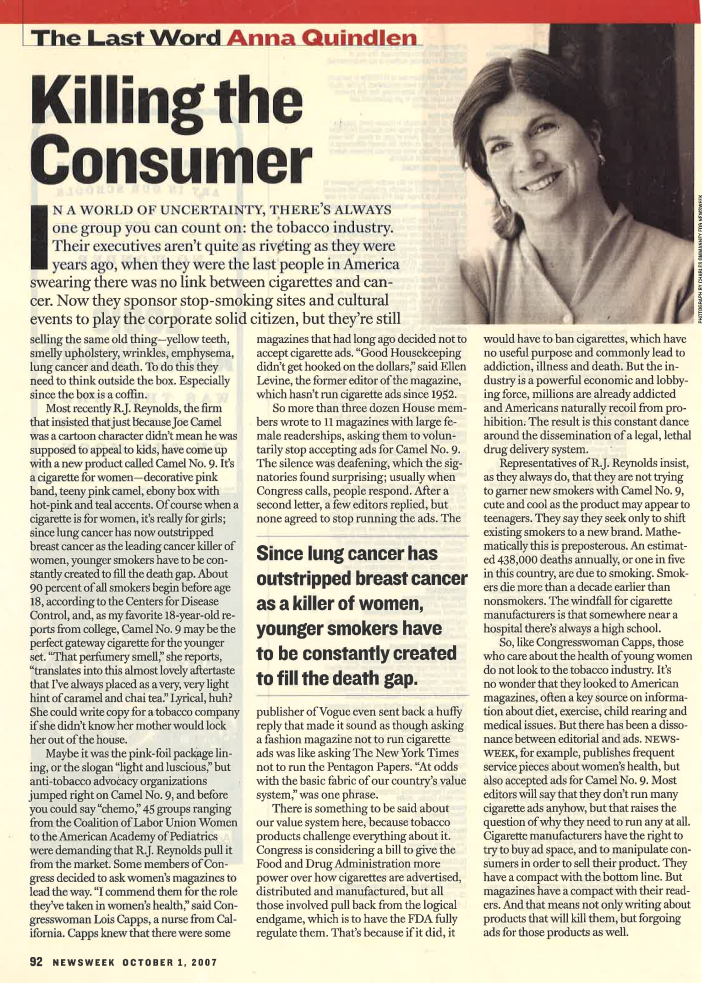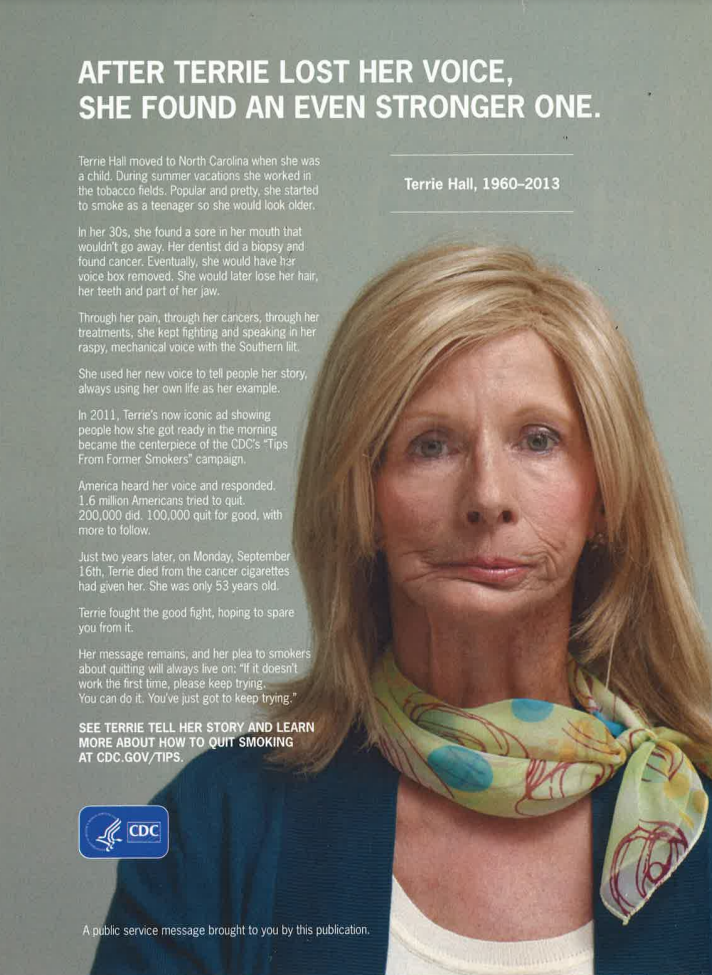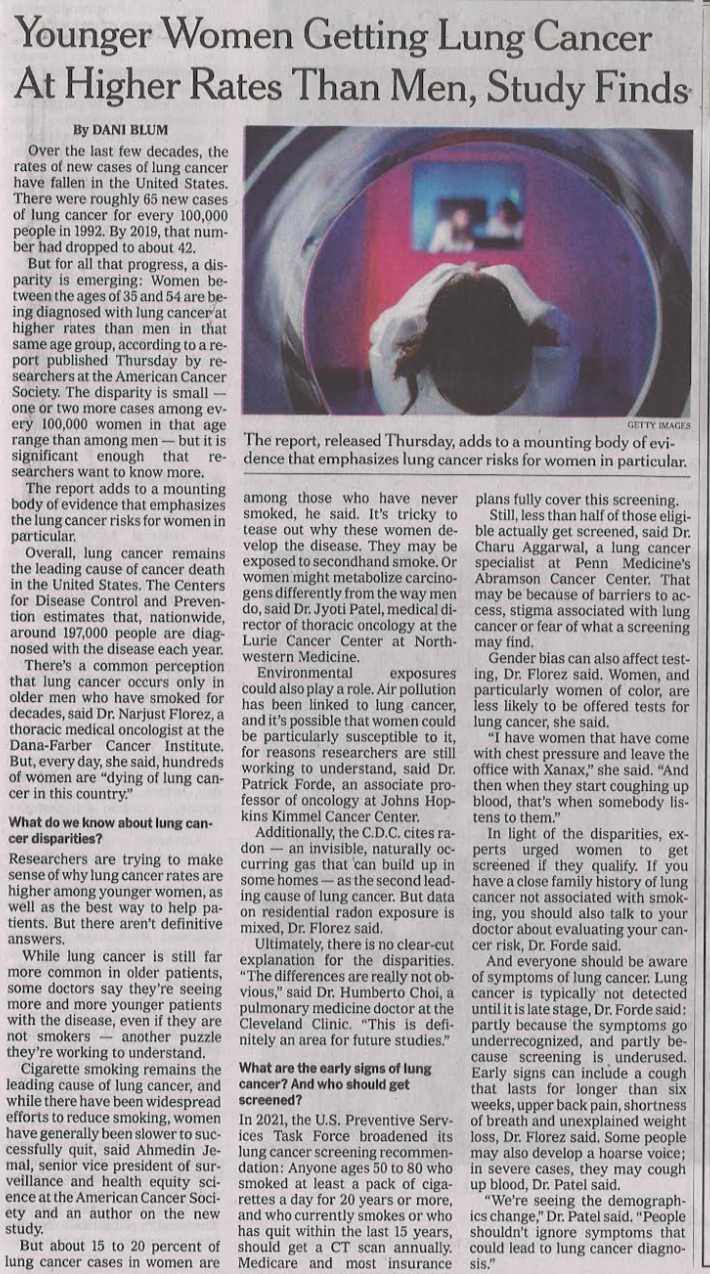WELCOME TO CANCER COUNTRY
At the turn of the 20th century, cigarette smoking was socially unacceptable for women. By the 1920s it had become a symbol of emancipation of women. As women’s smoking rate rose, so did the incidence of lung cancer, emphysema, and heart disease. Smoking in pregnancy was also found to double the chances of having of a low birthweight baby, among other adverse effects. In 1971, Louis Cullman III, the head of Philip Morris, acknowledged that women who smoke have smaller babies on average but added, “Some women would prefer having smaller babies.” On January 11, 1979, at the press conference to release the 15th annual Surgeon General’s report on smoking and health, Secretary of Health, Education and Welfare Joseph A. Califano, Jr. famously observed, “Women who smoke like men die like men who smoke.” By the mid-1980s, the Connecticut Tumor Registry reported that lung cancer had surpassed breast cancer as the leading cause of death from cancer in women. Today more women are diagnosed with lung cancer than men.



